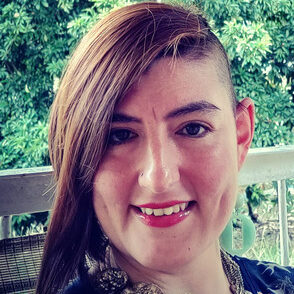Switching careers after the age of 30 is often seen as an unorthodox choice. Yet, it is a surprisingly common one in nursing: According to the Texas Board of Nursing, in 2016, over 45% of all newly enrolled students were over 26 years old. Undoubtedly, going to nursing school at 30 or later is a difficult path. In many ways, your experience and maturity will be assets that will offset the sleepless nights and personal sacrifices. Will the sacrifice pay off? And if you choose to leap, what can you do to make the path easier?
It’s impossible to provide universal answers. But as someone who will not become an RN before 34, I can shed some light on the practicalities and emotions that come with joining nursing as an older adult.
Becoming a Nurse Later in Life
I was just a few weeks shy of my 30th birthday when I found myself holding the hand of an immigrant mother whose child was in urgent need of an MRI. I was wearing borrowed scrubs and my old running shoes, and if you didn’t look at me too closely, you might have thought I was a real health care worker. In reality, I was just a volunteer interpreter. I hadn’t been doing it for very long: I had landed on the ER after being nudged by my therapist because I needed an excuse to get out of the house.
It took me a few more weeks to realize that it had been the first day that I had been able to sleep properly and maybe another month before I accepted that this was what I wanted to do.
When I approached one of the hospital administrators about possible career paths in health care, she immediately offered to write a letter of recommendation for the closest nursing program.
How did I get here?
I have always been great at foreign languages. Because of this, it felt natural to major in literature and foreign languages immediately after high school. After graduating, I quickly landed a pretty cushy job at a marketing start-up.
It was the kind of job where we had beanbags around our open-office workstations, open bars at company retreats, and collaborative Spotify playlists. However, most of our work was drafting aggressive landing pages and designing social media sales funnels for dubious supplements.
Then I married and moved to a small Caribbean island with no publishing industry but an unprecedented refugee crisis. My now-husband had a good position, but jobs for me seemed limited to admin or retail. I knew nobody here, and all my connections were either my husband’s family or his friends.
Eventually, I found a job as a receptionist, which paid little but got me out of the house. I supplemented this by doubling as a freelance translator, constantly on my computer until past midnight, working on user manuals and OSHA (Occupational Safety and Health Administration, a U.S. government agency) documents that nobody was going to read.
Looking back, I had been unhappy with my career choices even before I left home. Finding out that I wanted to be a nurse felt like an epiphany, but it was probably an unconscious choice that had been years in the making. Making this choice a reality required a few more months of much more intense, active work.
Pros and Cons of Coming into Nursing Later
When somebody first suggested the possibility of becoming a nurse, I was quick to dismiss it. My first degree had been full of activism, rowdy parties, and Red Bull-fueled crunch periods. I just wasn’t up to it anymore. I’m too old to become a nurse at 30.
But the idea was there. I began talking more to nurses at the hospital where I volunteered. There were quite a few who had become RNs at 35, 40, or even later.
Three years later, I can attest that “mature” nursing students often have a leg up on their younger counterparts.
Pros of being an older nursing student
Better soft skills
Nursing is an evidence-based health care profession. However, it also requires stronger “soft skills” than most other professions. Nurses need extra patience and empathy, plus the ability to adapt, delegate, and work as a team. These are not the kinds of skills you can pick up at school, but a few years at the workplace will slowly build them for you.
More resilience
With experience comes the ability to take a step back, see the big picture, and work out a solution. If you are 30, you may often find yourself looking back at a crisis point you overcame in your 20s and realising that it was not such a big deal at all!
Nursing school is full of little moments where deadlines pile up or skills feel impossible and unsurmountable. Your maturity will help you stay afloat during those times.
More focused on your performance
Although some 18-year-olds start out as old souls, prioritizing and staying focused don’t come easily for the average young adult. At the age of 30, it’s easier to say no to outings and to plan ahead of finals week.
A better idea of what it’s like
Many young nursing students often don’t know what to expect from nursing. The realities of the profession can come as a discouraging shock. If you have already been working in health care or have more mature nurse friends, you can gain a more nuanced view of the profession. You’ll have access to a more informed choice.
Being taken more seriously by patients, preceptors, and faculty
This last point borders on being unfair, to be honest. Still, the reality is that patients and other nurses often give young nursing students (and even recent graduates) a hard time. The old cliche of “nurses eat their young” is not universal, but it is true more times than it should be. As an older nursing student, I was partially shielded from this. By being closer in age to my lecturers and preceptors, some of them felt they could be franker with me.
Likewise, rowdy or difficult patients are often more willing to disrespect those they feel are inexperienced or simply look young. There is no excuse for abusing health care staff, but it does happen—and abusive patients just love picking on new nurses.
Studying nursing has never been easier.
Set yourself up for success with Lecturio.
Cons of waiting before nursing school
A more complex work–life balance
At the age of 30, it’s only natural to have more obligations and responsibilities. Sometimes, stopping paid work is simply not possible. Other older students in my class also have children and mortgages to mind. Owing to the pandemic, one of them lost her job and had to drop a couple of courses to find a new part-time position.

Feeling disconnected from classmates
I was far from the only older student in my class. However, the majority were still under 21. When we first had to form study groups or find partners for specific projects, I initially tried to steer clear of the younglings. I just felt like I had no idea what to talk to them about.
Financial aid may seem harder to come by
This may be true, or it may only appear to be so, depending on where you live or the school you plan to attend. That being said, I found I did not qualify for many scholarships and loan programs because I was too old, already had a bachelor’s degree, and was not yet a citizen of my new country.
The feeling of time slipping by
My decision to enroll in nursing school meant postponing or altering some of the life plans I had with my husband. Having paused full-time work at this point may mean that we won’t be able to retire as young as we’d initially thought. We also had to postpone buying our own home.
This became worse when 2020 rolled in and the pandemic upended my program and clinical rotations. I was furious. I was already going to be an “old” baby nurse and now the semester may get cancelled? Would I be 40 by the time I had finished with this? Now, we’ve had to delay some of our goals by another year.
If I Could Do It All Over Again: Tips for Becoming a Nurse Later in Life
I am now entering the final year of my BSN program. I wouldn’t change the critical turning points that led me here. However, there are a few things I wish I’d done differently after I received my student ID. Here’re a few of them:
Embrace your role as an older sister
Who is Billie Eilish? And Lil Nas X? I now have these two artists on my most played list, and the people who introduced me to them turned out to be bright, ambitious classmates who were also very cool with adapting to my busier schedule.
You will probably have at least a handful of classmates coming into nursing as a second career. Don’t limit your social circle to them. On a practical level, they are also busy adults with lives, loans, and kids, so organizing a study group with them may be frustrating or impossible.
You may not be able to join the 18-year-olds in frat house parties, but you can still learn from each other. Some may even look up to you as an older sister. Embrace this, and they’ll be around to help you out when your old millennial knees struggle with the hospital floor.
Don’t compete
If you’ve spent a few years in the workplace—especially if it was in a competitive, metrics-oriented industry—then you may have also gotten used to thinking of everything as a competition. Remember: Everyone in your class is going to get their own BSN and nursing license. You don’t need to be employee of the month at school. You won’t be kicked out of the program for not being at the top of your class.
Budget for your prerequisites
Even if you already have a BA under your belt, you may still need to take additional science classes before properly applying to a nursing program. Often, the loans or grants that fund the overall program won’t cover these prerequisites. Make sure you include them in your financial and time estimations from the start!
If there is a specific prerequisite that you technically met over five years ago, don’t take that knowledge for granted. If possible, try to audit the course or get a tutor to help you review the course outline independently.
Get a set of compression stockings
They’re ugly and overly warm and take forever to dry. When a nurse who knew me from my volunteering days gifted me a set, I laughed. Sure, they will protect your legs from varicose veins when you are 50 – but I was a fit 30-year-old who runs 5Ks. Get the stockings. They’re so much gentler on your body than daily Advil.
Keep your long-term goals firm …
A new career is a marathon, and you will have to keep your eyes on the finish line to keep going. Sometimes, you’ll be tired beyond reason. Remember why you are doing what you are doing.
… and your short-term ones kind
At the same time, you need to be fit and sane if you want to be a good nurse by the time you graduate. Your discipline and work ethics will help you pass, but you don’t always need an A.
Looking at the Future
Once graduation is within sight, you may not necessarily feel like everything has fallen into place. At least, it hasn’t for me. I still don’t know whether I want to specialize or where we will move to after graduation (and often, I feel like I am the only one in my class who doesn’t). But that’s okay. Whatever I am doing today leads me toward the answer –even if I can’t tell yet.





